- Overview
- Trip Outline
- Trip Includes
- Trip Excludes
- Gallery
- Reviews
- FAQ
Witness the majesty of the African wilderness as you track down the elusive Big Five, marvel at herds of red elephants, and explore the diverse ecosystems of this iconic Kenyan park.
Highlights:
- Early morning game drives: Experience the thrill of witnessing the African sunrise while searching for wildlife.
- Big Five encounters: Increase your chances of spotting lions, leopards, elephants, buffaloes, and rhinoceroses in their natural habitat.
- Scenic landscapes: Explore the vast grasslands and acacia woodlands of Tsavo East National Park.
- Expert guidance: Benefit from the knowledge and insights of your experienced safari guide.
- Comfortable accommodations: Relax and unwind at your lodge after a day of adventure.
Passenger Information
Passengers should bring only soft-sided bags on safaris.
Gratuities: Tipping is part of Kenyan culture and as much as we insist that it is voluntary, it is important to note that it is much appreciated.
Just as a guideline on the same:
Porter 3 – 5 USD per service
Restaurants and bars 10% of the bill
Safari Guides 5-10 USD per person per day, depending on the level of satisfaction
Additional Remarks
Cancellation Policy:
In the absence of a signed contract, cancellations will be subject to the terms outlined in our agent's agreement.
If no agent's agreement exists, our printed Price Guide will determine the cancellation policy.
We encourage you to request a copy of the relevant cancellation policy for your reference.
Itinerary and Accommodation:
While we strive to maintain the itinerary as listed, unforeseen circumstances may necessitate rerouting or substituting similar lodges. We will communicate any such changes promptly.
Meal plan
BB- Bed & Breakfast
FB- Full Board
HB- Half Board
Park Fees:
Please note that park entrance fees are subject to change without prior notice. We have no control over these fees, and any increases will be reflected in the final price you pay.
Itineraries
Day 1
Mombasa – Tsavo East
Early in the morning, your guide will pick you up from your hotel. They will provide a brief overview of your safari. Afterward, you will embark on a journey to Tsavo East National Park via the Mombasa-Nairobi Highway.
Tsavo East National Park, the largest protected area in Kenya, is renowned as the "Theater of the Wild." Its predominantly grassland savanna landscape makes it conducive to wildlife spotting. With a bit of luck, you may encounter the entire Big Five during your visit. The park is home to herds of "red" elephants, buffaloes, rhinoceroses, lions, leopards, cheetahs, gerenuks, and a diverse array of bird species.
Once you enter the park, you will embark on an en route game drive toward your lodge. Around lunchtime, you will arrive at the lodge, check in, and enjoy a delicious meal. Later in the afternoon, you will return to the park for an evening game drive, lasting approximately two hours. Try your luck and see if you can spot the entire Big Five.
Dinner and overnight will be at Voi Wildlife Lodge (FB).
Day 2
Full Day Tsavo East
Depart early in the morning for a game drive. As the sun rises, enjoy the breathtaking scenery while searching for wildlife in this "Theater of the Wild." Your guide will later escort you back to the camp for a warm breakfast.
Throughout the day, you will embark on additional game drives, taking breaks at the camp to escape the midday heat and relax. Enjoy a delicious lunch and spend some time enjoying the activities at the beautiful water hole. In the evening, witness the stunning sunset over this magnificent park.
Return to the camp, savor a delightful dinner, and spend the night.
Accommodation: Voi Safari Lodge or similar (FB)
Day 3
Tsavo East - Diani
Enjoy an early morning game drive in Tsavo East National Park. Afterward, check out of the lodge and embark on a journey to Diani Beach. You will arrive in the evening and be dropped off at your hotel.
- Guaranteed Safari Confirmations
- Reliable Transportation: Travel in a spacious 4x4 Land Cruiser, perfect for game viewing and capturing stunning photographs.
- Comprehensive Accommodation: Enjoy full board accommodations during your safari.
- Emergency Preparedness: Benefit from flying doctor emergency rescue coverage for added peace of mind.
- Park Entrance Fees: All park entrance fees, including government taxes, are covered.
- Expert Guidance: Experience personalized service from a knowledgeable English-speaking driver/guide.
- Extensive Game Drives: Embark on numerous game drives as outlined in your itinerary.
- Refreshments: Stay hydrated with bottled water provided throughout your safari.
- Convenient Travel: Begin and end your journey in Nairobi.
- Tailored Experience: Enjoy a safari customized to your preferences.
- Visas, International Flights, and Airport Taxes: Clients will pay these costs directly.
- Gratuities: Tips for your driver-guide.
- Personal Expenses: Drinks, dining room tips, porterage, personal travel, baggage, medical insurance, telephone bills, laundry, and any other items of a personal nature.
KENYA
The best time to visit Kenya depends on your preferences and the specific experiences you are seeking. Generally, the dry seasons of January to March and July to October are considered the best times for wildlife viewing in Kenya. During these months, the weather is usually warm and dry, and the vegetation is less dense, making it easier to spot animals.
The Great Wildebeest Migration, one of Africa’s most spectacular wildlife events, occurs in the Masai Mara between July and October. This period attracts a large number of visitors who come to witness the dramatic river crossings.
If you’re interested in birdwatching, November to April is a great time to visit Kenya, as migratory bird species are present, and the birdlife is abundant.
It’s worth noting that Kenya’s climate varies across different regions and altitude levels. Coastal areas tend to have a tropical climate, while highland regions, such as Nairobi and Mount Kenya, have milder temperatures year-round.
Ultimately, the best time to visit Kenya depends on your preferences, the specific activities you wish to engage in, and the wildlife or natural phenomena you want to witness.
TANZANIA
The best time to visit Tanzania depends on the specific regions and experiences you are seeking. Tanzania has diverse ecosystems and a range of climates, so the ideal time to visit can vary.
For wildlife viewing, the dry season from June to October is generally considered the best time. During this period, animals gather around water sources, and vegetation is less dense, making it easier to spot wildlife in national parks like Serengeti and Ngorongoro Crater. The Great Wildebeest Migration, where millions of wildebeest and zebras move between Tanzania and Kenya, typically occurs from November to August, with specific timing varying each year.
If you’re interested in birdwatching, the wet season from November to April is the prime time as migratory bird species are present, and the birdlife is abundant.
It’s important to note that Tanzania’s climate can vary from coastal regions to highland areas. Coastal regions, such as Zanzibar, have a tropical climate with hot and humid conditions year-round. In contrast, the highlands, including Mount Kilimanjaro and the Southern Highlands, can be cooler, especially at higher altitudes.
On the Kenya side we operate our safaris using 4×4 Safari vans and 4×4 Safari land Cruisers.
For transfers we may use tourist buses or small vehicles licensed to carry tourists. All our Safari vehicles are well maintained, and our driver guides are professionals with relevant certifications and licenses.
As you embark on your upcoming travel adventures, we would like to emphasize the importance of obtaining travel insurance. While we hope that your journey is smooth and free of any unforeseen events, having adequate travel insurance provides you with peace of mind and financial protection in case of unexpected circumstances.
Here are a few key points to consider when it comes to travel insurance:
Medical Emergencies: Travel insurance ensures that you have access to medical assistance and coverage in case of illness or injury during your trip. This includes medical evacuation if necessary, which can be costly without insurance.
Trip Cancellation or Interruption: Life is unpredictable, and sometimes plans need to be altered or canceled. Travel insurance can provide reimbursement for non-refundable expenses if your trip is canceled or cut short due to covered reasons, such as illness, injury, or unforeseen events.
Lost or Delayed Luggage: It’s not uncommon for luggage to be lost or delayed during travel. With travel insurance, you can receive compensation for necessary items you may need while your luggage is being located or replaced.
Travel Delays or Missed Connections: Travel insurance can offer coverage for additional expenses incurred due to significant travel delays or missed connections, such as accommodation, meals, or transportation arrangements.
Emergency Assistance: Having travel insurance means having access to 24/7 emergency assistance services. These services can help with issues like lost passports, emergency cash transfers, or providing information and support during critical situations.
Before purchasing travel insurance, carefully review the policy coverage, limitations, and any exclusions that may apply. It’s essential to choose a policy that suits your specific travel needs and consider any pre-existing medical conditions that might require additional coverage.
Remember, travel insurance is an investment in your peace of mind and can protect you from significant financial burdens during your journey. We highly recommend obtaining travel insurance and encourage you to reach out to our team if you have any questions or require assistance in finding a suitable insurance provider.
Wishing you safe and enjoyable travels!
When preparing for an African safari, it’s essential to pack wisely to ensure a comfortable and enjoyable experience. Here is a list of items to consider including in your safari packing list:
Clothing:
Lightweight, breathable, and neutral-colored clothing (long-sleeved shirts and pants) for sun protection and to ward off insects.
A warm layer or jacket for early morning and evening game drives when temperatures can be cooler.
Comfortable walking shoes or hiking boots for bush walks or nature trails.
A wide-brimmed hat, sunglasses, and a lightweight scarf or bandana for sun protection.
Swimwear if your safari includes a beach or pool visit.
Safari Gear:
Binoculars for wildlife viewing.
Camera with extra batteries, memory cards, and a lens suitable for wildlife photography.
A small daypack or camera bag to carry your essentials during game drives or walks.
A waterproof and dustproof bag or cover for your camera equipment.
A power bank to keep your electronic devices charged.
Personal Essentials:
Insect repellent with high DEET content to protect against mosquitoes and other insects.
Sunscreen with a high SPF to shield your skin from the sun’s harmful rays.
Medications and personal toiletries (including any prescription medications you require).
Hand sanitizer and wet wipes for hygiene purposes.
A small first aid kit with basic medical supplies.
Miscellaneous:
Travel adapters and chargers for electronic devices.
A headlamp or flashlight for evening activities or power outages.
Travel documents, including your passport, visa, and travel insurance details.
A lightweight and collapsible water bottle to stay hydrated.
Cash and/or credit cards for gratuities, souvenirs, or additional expenses.
Remember to pack light and efficiently, as luggage space may be limited, especially if you are flying between safari destinations. Check with your safari operator or accommodation provider for any specific packing recommendations or restrictions.
Additionally, it’s advisable to familiarize yourself with the weather conditions and cultural norms of the specific regions you will be visiting to ensure you pack accordingly.
Safe travels and enjoy your African safari adventure
To obtain a Kenya visa, you can follow these steps:
1. Determine the type of visa you need: Kenya offers different types of visas, including tourist visas, business visas, and transit visas. Determine the appropriate visa category based on the purpose of your visit.
2. Online Application: Visit the official website of the Kenya eVisa portal (https://www.evisa.go.ke/) and create an account. Fill out the online application form with accurate and up-to-date information. You will need to provide details such as your personal information, passport details, travel itinerary, and contact information.
3. Upload Required Documents: Scan and upload the necessary documents as specified on the application form. These typically include a copy of your passport biodata page, a recent passport-sized photograph, and any additional documents specific to your visa category.
4. Pay the Visa Fee: Process the payment for the visa fee online using a valid credit or debit card. The fee will depend on the visa type and duration of stay.
5. Submit Application: Review your application to ensure all information is accurate and complete. Submit the application online through the eVisa portal.
6. Receive eVisa Approval: After submitting the application, you will receive an email notification acknowledging receipt of your application. The processing time for the visa is usually within a few business days, but it can vary. Once approved, you will receive an eVisa approval letter via email.
7. Print the eVisa Approval: Print a copy of the eVisa approval letter to carry with you during your travel. You will be required to present it upon arrival in Kenya.
8. Arrival in Kenya: Upon arrival at a Kenyan port of entry (airport or border crossing), present your passport, printed eVisa approval letter, and any other required documentation to the immigration officials for verification. They will stamp your passport with the visa, granting you entry into the country.
Note: It’s important to check the latest visa requirements and application procedures as they may change. It’s advisable to apply for the visa well in advance of your planned travel dates to allow for any processing delays.
If you have any specific questions or concerns regarding the visa application process, it’s recommended to contact the nearest Kenyan embassy or consulate or consult with a professional visa service for guidance.
To obtain a Tanzania visa, you can follow the steps outlined below:
1. Determine the type of visa you need: Tanzania offers various types of visas, including tourist visas, business visas, and transit visas. Identify the appropriate visa category based on the purpose of your visit.
2. Check visa requirements: Visit the official website of the Tanzanian Embassy or Consulate in your country to understand the specific requirements for your visa category. These requirements may include a passport with at least six months of validity, completed application forms, passport-size photographs, proof of travel arrangements, proof of accommodation, and financial statements.
3. Complete the visa application form: Obtain the visa application form from the Tanzanian Embassy or Consulate website or from the embassy itself. Fill out the form accurately and legibly with all the required information.
4. Gather the required documents: Collect all the necessary supporting documents based on the visa category you are applying for. These may include your passport, passport-size photographs, flight itinerary, hotel bookings, invitation letters, financial statements, and any additional documents specified by the embassy.
5. Pay the visa fee: Find out the visa fee for your category and make the payment as per the instructions provided by the embassy or consulate. Visa fees can typically be paid in cash or through accepted methods such as debit/credit cards or money orders.
6. Submit your application: Once you have completed the application form, gathered the required documents, and paid the visa fee, submit your application along with all the supporting documents to the Tanzanian Embassy or Consulate in your country. You may need to make an appointment in advance or follow a specific submission process outlined by the embassy.
7. Wait for processing: The processing time for a Tanzania visa can vary, so it’s advisable to apply well in advance of your intended travel dates. Check with the embassy or consulate for an estimated processing time.
8. Collect your visa: Once your visa application has been processed and approved, you can collect your passport with the visa stamped in it from the Tanzanian Embassy or Consulate. Make sure to verify all the details on the visa to ensure they are accurate.
Note: Visa requirements and processes can change over time, so it’s always best to consult the official website of the Tanzanian Embassy or Consulate in your country for the most up-to-date information and instructions.

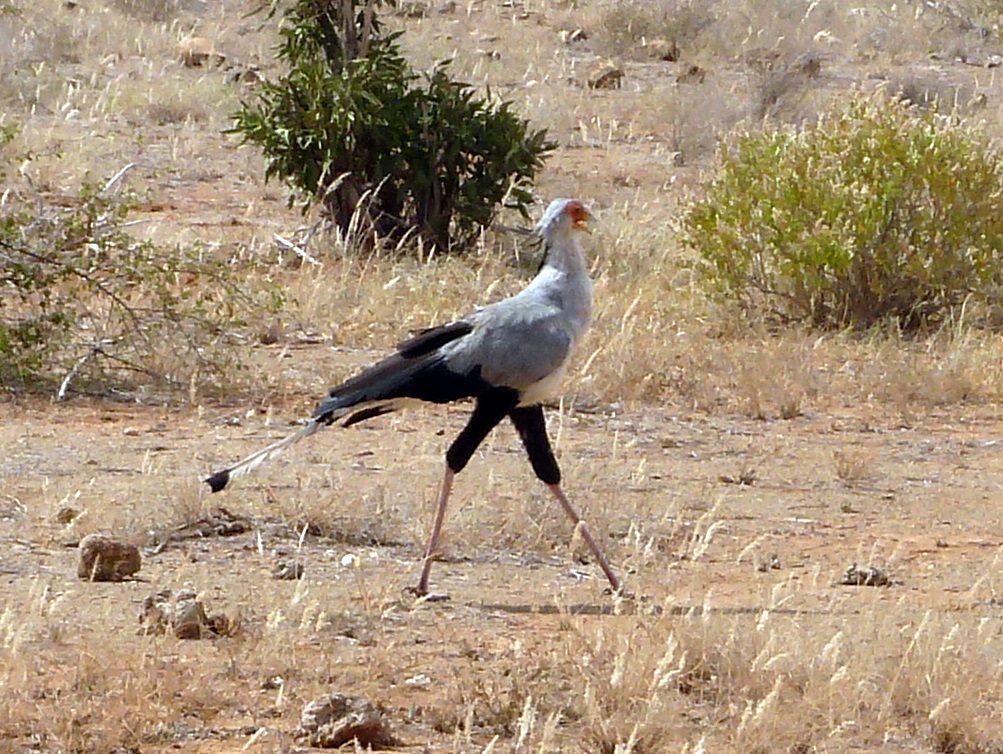




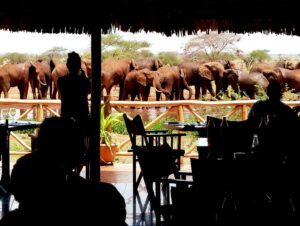
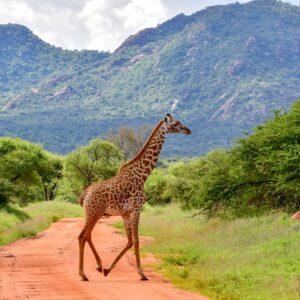
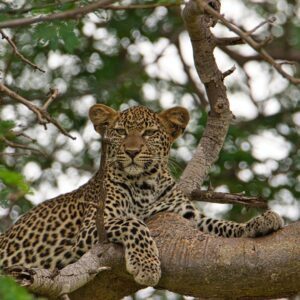

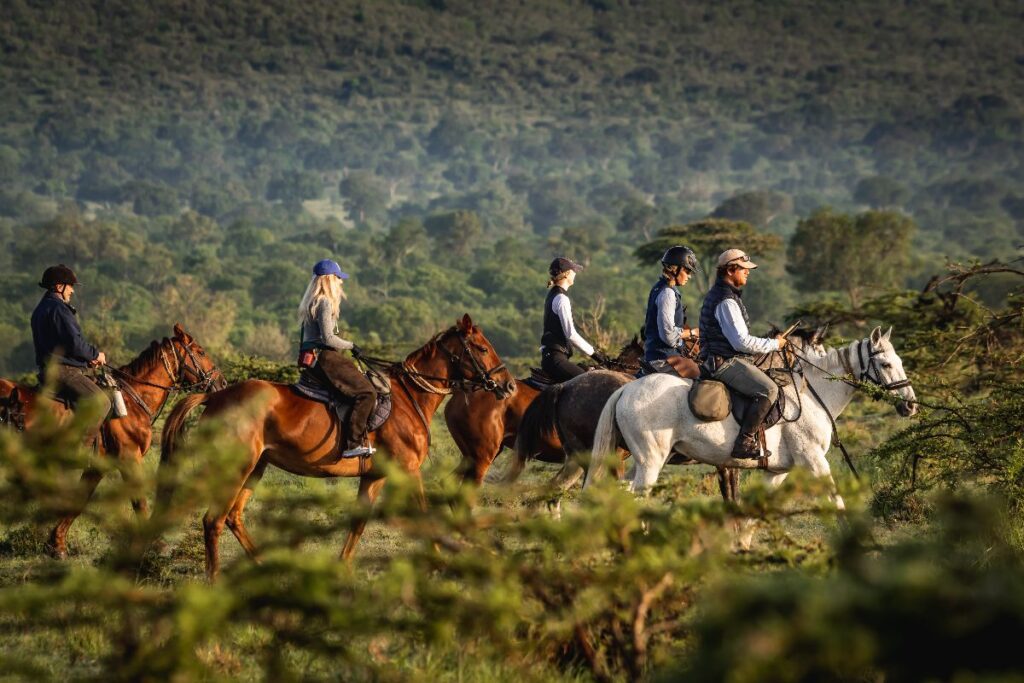
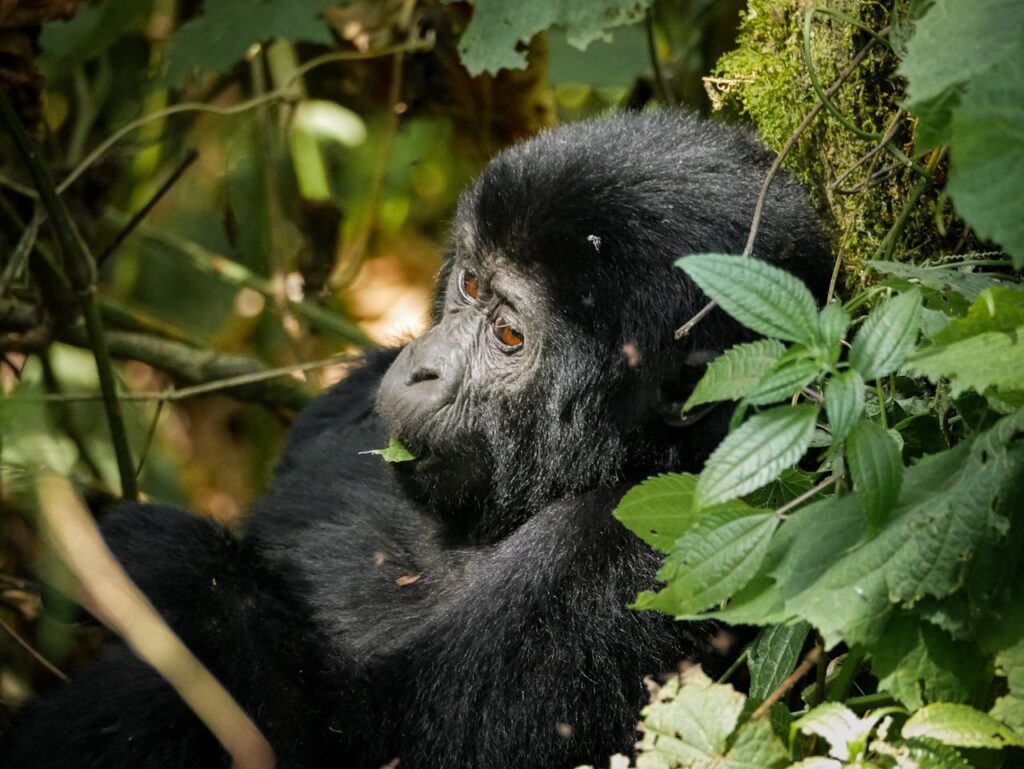
There are no reviews yet.